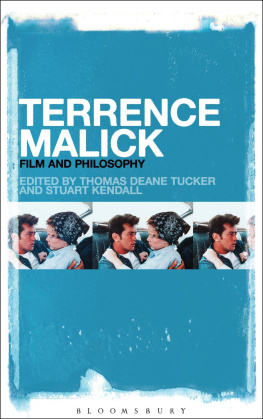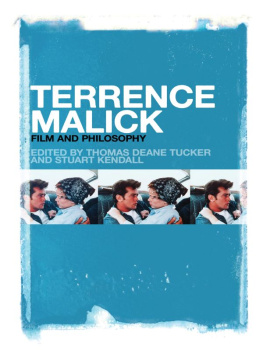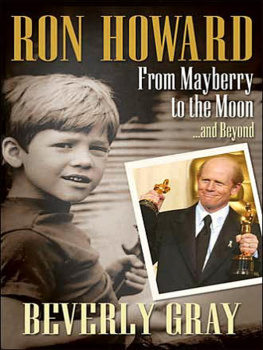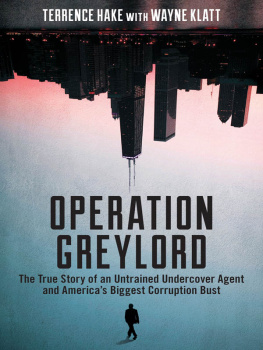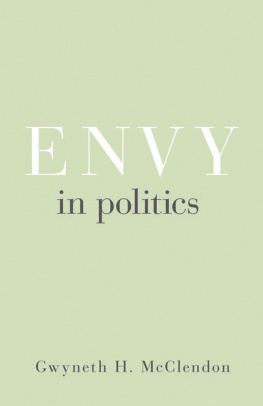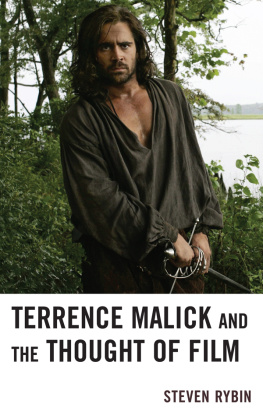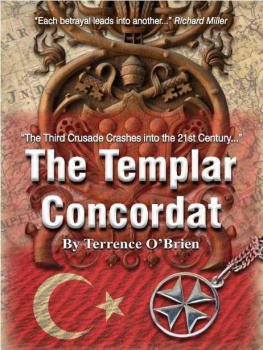Terrence McClendon - The Wild Days. NLP 1972 to 1981
Here you can read online Terrence McClendon - The Wild Days. NLP 1972 to 1981 full text of the book (entire story) in english for free. Download pdf and epub, get meaning, cover and reviews about this ebook. genre: Science. Description of the work, (preface) as well as reviews are available. Best literature library LitArk.com created for fans of good reading and offers a wide selection of genres:
Romance novel
Science fiction
Adventure
Detective
Science
History
Home and family
Prose
Art
Politics
Computer
Non-fiction
Religion
Business
Children
Humor
Choose a favorite category and find really read worthwhile books. Enjoy immersion in the world of imagination, feel the emotions of the characters or learn something new for yourself, make an fascinating discovery.

- Book:
- Author:
- Genre:
- Rating:5 / 5
- Favourites:Add to favourites
- Your mark:
- 100
- 1
- 2
- 3
- 4
- 5
: summary, description and annotation
We offer to read an annotation, description, summary or preface (depends on what the author of the book "" wrote himself). If you haven't found the necessary information about the book — write in the comments, we will try to find it.
— read online for free the complete book (whole text) full work
Below is the text of the book, divided by pages. System saving the place of the last page read, allows you to conveniently read the book "" online for free, without having to search again every time where you left off. Put a bookmark, and you can go to the page where you finished reading at any time.
Font size:
Interval:
Bookmark:
The Wild Days. NLP 1972 to 1981
Publishing info
Illustrations by Marni Taylor
Cover illustration by Tom Killion - Last Winter in Santa Cruz Book design by Kasrynne Huolohan
Dedicated to Claire Kathleen
Foreword
NLP: The Wild Days is the story of John Grinder's and my adventures during the formative days of NLP. It's not only the story of the outrageous things that Grinder and I did 25 years ago; it's also the story of the spirit in which NLP was founded, has grown, and continues to evolve.
That spirit is basically the belief that anything is possible, and that it's the human mind that makes it so. This idea is much more common and widely accepted now than it was back then; in those days, people used to express the impossibility of something by saying, "There'll be a man on the moon before_happens." Of course, in 1969, putting a man on the moon lost its power as a metaphor for impossibility!
Grinder and I never accepted what most people assumed about the limits of human beings anyway. We always felt that humans were capable of much more excellence, creativity, and successin all kinds of endeavorsthan most people believed. The growth of NLP, and its application to fields as diverse as physics, pilot training, and salesvindicates the approach we took.
After all this time, it's still exciting for me to look back at those early days. The perspective of 25 years shows us that while what we were up to back then may have seemed wild and crazy, what's really outrageous, at any time, is to reach the boundaries of human knowledge or capability and not be afraid to move beyond them.
Terry McClendon has admirably captured the spirit of this singular adventure that NLP offers people. More and more people all over the world are realizing that neither deep space nor the ocean are the "final frontier"; the real frontier is to gain control over cognitive evolution, so that individuals, groups, nations, and all humanity are truly prepared for the stern challenges that lay ahead.
Terry's book brings back a lot of pleasant memories of funny things that happened during those early NLP days. Of course, Terry's recollections of the now-long-ago past may not match in every detail those of other people who were there. In some cases, they don't match mine exactly. But that's not the point. What he has captured, beyond dispute, is the spirit of adventure that gave birth to NLP and that continues to energize it. As long as that spirit survives, NLP will continue to push out the boundaries of human potential into uncharted, but very stimulating, waters.
Thank you, Terry.
Richard Bandler
Introduction
The Wild Days is a personal account of the historical development of Neuro-Linguistic Programming and its two key developers, Richard Bandler and John Grinder. The author traces the development of NLP from its preconception in 1972 thru to its maturation in 1981. This book is a first hand account of the training seminars and wild stories of NLP's two key figures. It also discusses the key figures of the core groups of the early days, their relationships and career developments.
The serious student of NLP will find this book a useful addition to your collection of metaphors about NLP. All others will find it fun. With its twenty seven illustrations it is the book that all the visuals have long waited for.
This book should be kept readily at hand for those precious moments in your morning duties and on the bedside table for a spicy piece of entertainment before retiring.
Enjoy, Terry.
Chapter One. Santa Cruz Bridge Trolls
Richard Bandler in 1972 was a student at the University of California at Santa Cruz. The city of Santa Cruz, population 40,000 in 1972, sits languishly on the Monterey Bay directly across from the historic state capital of Monterey. The temperate climate of Santa Cruz and its unique environment afford you the pleasure of its many beaches and cool redwood groves.
The occasional bridge troll can still be found under the Water Street bridge, one of the last strongholds of the American Hippy, where a tourist is confronted with River, Water and Ocean Streets and wonders which way to the beach. The home of The Hook at Pleasure Point and Steamer Lanes, the surfers mecca. For those in the know about crystals, pyramids and tarot, Santa Cruz's stature is equal to that of the Bermuda Triangle, Boulder Colorado and other high energy windows to the universe. The home of Alfred Hitchcock, Jay Silverheels of the Lone Ranger and Tonto, Shirley Temple, Frank Herbert, Gregory Bateson, Baba Ram Dass, Santana, The Doobie Brothers, Tom Smothers and more.

The University is tucked away amongst the redwood groves overlooking the city of Santa Cruz and the Pacific Ocean. Its peaceful atmosphere lends itself to almost anything except serious academia.
Richard used to walk around the university campus looking like he just came home from a street fight on the back streets of San Jose. His hair was longish and he sported a goatee. He was rarely without his knife on his hip. Now everyone knows that anything could happen to anybody at anytime, in nowhere. However I believe Richard used to take that literally even in the quiet calm atmosphere of the university.
Richard Wayne Bandler grew up in San Jose, California. You could liken his childhood to that of the "cats and jammer" kids - ragamuffins around the block. At one time Richard's family owned a restaurant and he used to hang around and watch his mother cook which gave Richard a natural ability for cooking. On the odd occasion that I would visit him at his Bonny Doon house he has cooked some fantastic meals.
Richard however, wasn't able to fully appreciate the benefits of his own cooking. During his escapades as a child he received a wound to his stomach which he led me to believe was a knife wound. Part of his intestines were removed so he wasn't able to digest some fresh vegetables. He is a great believer in meat and has a bias for a certain French restaurant on Ocean Street in Santa Cruz.
Richard graduated from Freemont High School and entered Foothills College in the Los Altos Hills. After two years he transferred to the university at Santa Cruz where he began a major in mathematics and computer sciences, later transferring his interest to the behavioural sciences.
Chapter Two. The Winter of 72
During his student years, Richard was parading around from class to class, taking philosophy, logic, computer science and mathematics. When I would see him in a classroom he didn't seem to be at all interested in the course content.
One afternoon in 1972 in a psychology class called the "Interpretation of Personal Documents" presented by Professor Bert, Richard stood up and started ranting and raving about the practicality of psychology courses at the university. "They should be teaching something more practical for people such as Gestalt Therapy", he would say and he would get all red in the face and hyped up, and shout and holler and storm out of the class room. Bert happened to be in complete agreement with Richard. He would say, "You see there just isn't anyone at the university who can teach a practical course in Gestalt Therapy."
Richard was in an experimental stage of his career which I feel is a life long stage for him. He was very interested in a school of thought called Gestalt psychology which focuses on bringing immediate present experience into greater clarity and increasing awareness. Richard spent many hours reviewing transcripts about Gestalt Therapy, starring a person named Fritz Perls, M.D.Ph.D, the founder of Gestalt Therapy.
Font size:
Interval:
Bookmark:
Similar books «»
Look at similar books to . We have selected literature similar in name and meaning in the hope of providing readers with more options to find new, interesting, not yet read works.
Discussion, reviews of the book and just readers' own opinions. Leave your comments, write what you think about the work, its meaning or the main characters. Specify what exactly you liked and what you didn't like, and why you think so.



